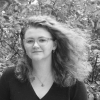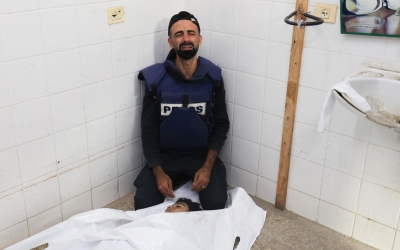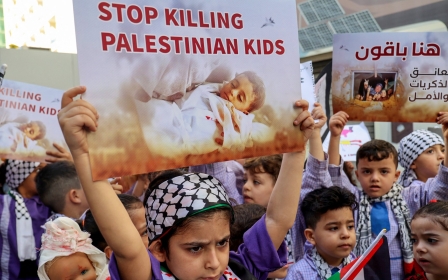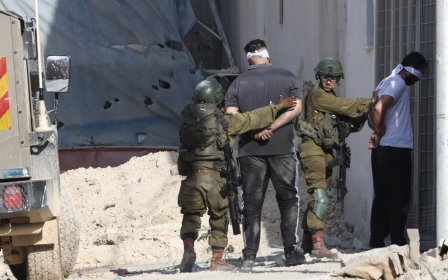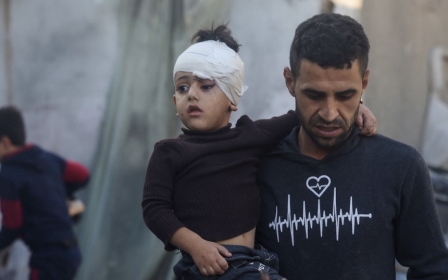Why do Israeli soldiers kill so many children in the West Bank? Because they want to, and can
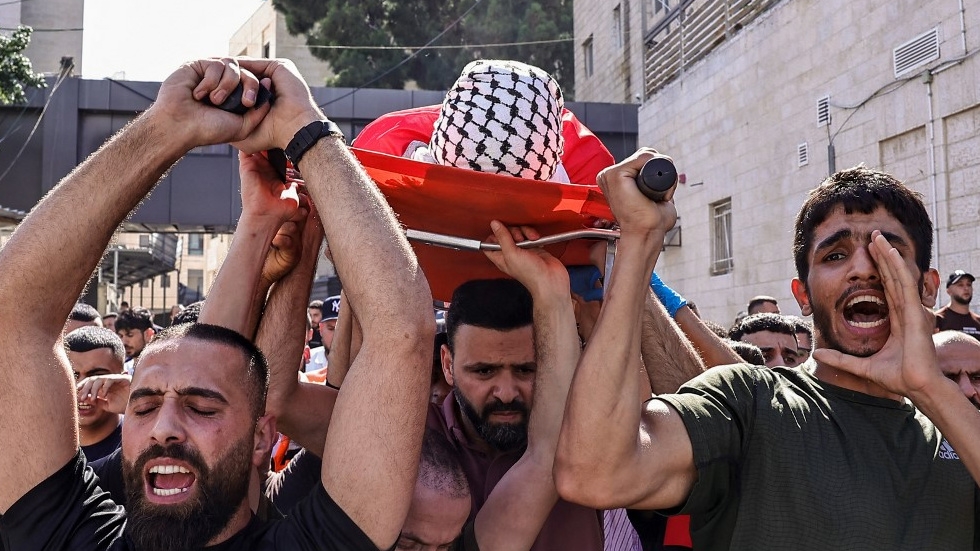
Israel’s genocide in Gaza, now approaching the one-year mark, has laid the groundwork for its military to use the same tactics in the occupied West Bank.
Late last month, Israeli forces launched the largest ground invasion of the occupied West Bank in decades, targeting northern refugee camps while continuing daily incursions into Palestinian communities.
In both Gaza and the occupied West Bank, Palestinian children are bearing the brunt of Israel’s brutality.
Twenty percent of all Palestinian children killed in the West Bank since 2000 have been killed by Israeli forces and settlers since 7 October 2023, at a rate of one child every two days, according to a new report released by Defense for Children International - Palestine (DCIP), where I work as an advocacy officer.
The report, entitled “Targeting Childhood: Palestinian children killed by Israeli forces and settlers in the occupied West Bank”, documents and analyses 141 cases of Palestinian children killed between 7 October 2023 and 31 July 2024.
New MEE newsletter: Jerusalem Dispatch
Sign up to get the latest insights and analysis on Israel-Palestine, alongside Turkey Unpacked and other MEE newsletters
I either wrote or edited every child fatality case in this report. As we collectively investigated all these incidents, it became clear that Israeli forces were deliberately targeting Palestinian children, with the intent to unleash cruel and degrading treatment up until the moment of the child’s death.
Since 7 October, Israeli forces and settlers have shot and killed 116 Palestinian children in the occupied West Bank with live ammunition. Ninety percent of them were shot in the head, torso or multiple areas, clearly demonstrating an intent to kill.
Blocking medical aid
Twenty-five Palestinian children were killed in Israeli aerial attacks in densely populated civilian areas. The Israeli military began using aerial attacks in the occupied West Bank over the summer for the first time since the Second Intifada in the early 2000s.
Some children were directly targeted by Israeli drone-fired missiles or other aerial weapons, while others were simply bystanders.
Follow Middle East Eye's live coverage of the Israel-Palestine war
We are publishing this report as the Israeli military carries out its largest incursion into the occupied West Bank in decades. Like countless operations before, the Israeli military’s first targets were children: an Israeli drone-fired missile struck the Na’ja brothers, 13-year-old Murad and 17-year-old Mohammad, on 28 August in al-Far’a refugee camp, as they sat on the roof of their home. They were killed instantly.
After the Israeli drone strike hit the two boys - along with their father and older brother, who sustained injuries - Israeli forces detained Palestinian ambulances and paramedics attempting to reach them.
Each time, Israeli forces blocked medical aid just long enough to confirm that the child had bled out and died
The prevention of medical aid is a pattern and intentional practice by the Israeli military. In 43 percent of the cases in our report, Israeli forces deliberately blocked ambulances, paramedics and civilians from reaching Palestinian children wounded by Israeli soldiers by firing, or threatening to fire, live ammunition. Each time, Israeli forces blocked medical aid just long enough to confirm that the child had bled out and died.
“Targeting Childhood” is based on evidence collected by DCIP’s courageous field researchers in the occupied West Bank, who meet families on the worst days of their lives to document the killing of their children.
Researchers collect every excruciating detail by speaking with parents, eyewitnesses and doctors. When available, they review medical reports and video footage. They do this work to ensure that Palestinian children are memorialised not as numbers or percentage points, but as irreplaceable members of their families and communities.
Time for sanctions
Detailed case studies of the killings of dozens of Palestinian children are featured in this report, and I encourage you to read each of them and sit with each child’s last moments.
Four-year-old Ruqaya was sitting in the back of a taxi van with her mom. Fifteen-year-old Mahmoud was riding his bike home from school. Thirteen-year-old Amir was demonstrating in solidarity with Palestinians in Gaza. Thirteen-year-old Mohammad was waiting for a taxi. Seventeen-year-old Mahmoud was standing at a window inside his own house.
Sixteen-year-old Luai was leaving a barber shop. Seventeen-year-old Karam was protesting Israeli settlers’ attempts to take over his village’s land. Ten-year-old Amr was riding in a car with his dad and little brother.
The casual, chilling cruelty of Israeli forces as they pull the trigger to kill a child shocks me every time. It is human nature to wonder, “why did the soldier kill this child?”
As Palestinian child fatalities soar, from Gaza to the occupied West Bank, the answer, too, is chilling: because they want to, and because they can. After all, no one has stopped them.
We are looking to the international community to take urgent and immediate action, including an arms embargo and sanctions, to protect Palestinian children. This moment demands moral courage and a commitment to do what is necessary, not what is perceived as possible. As long as the world watches with shoulders shrugged, Palestinian children’s lives will hang in the balance.
The views expressed in this article belong to the author and do not necessarily reflect the editorial policy of Middle East Eye.
Middle East Eye delivers independent and unrivalled coverage and analysis of the Middle East, North Africa and beyond. To learn more about republishing this content and the associated fees, please fill out this form. More about MEE can be found here.


